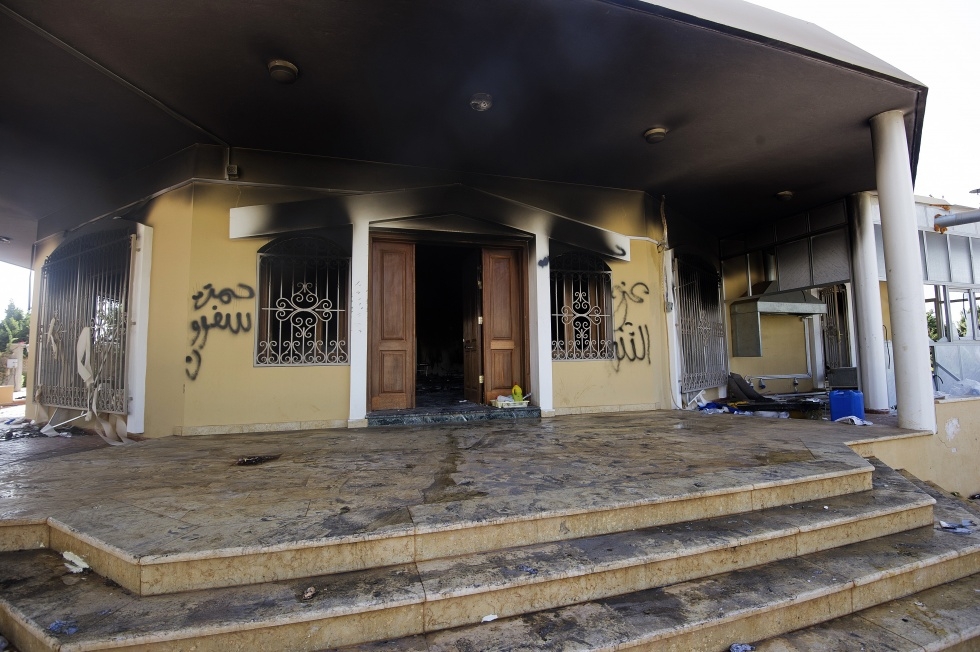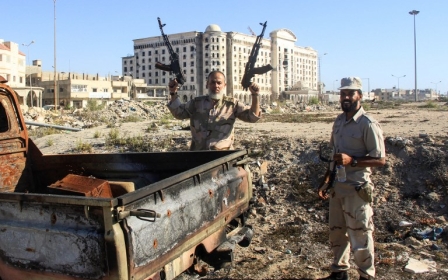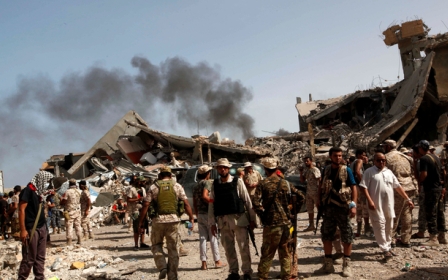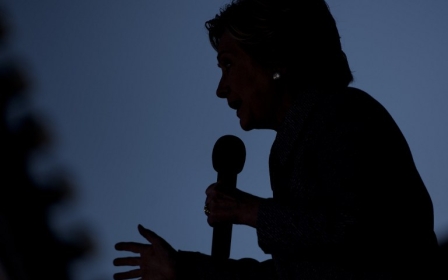Trial begins for alleged ringleader of attack on US compound in Benghazi

Federal prosecutors on Monday opened their case against the alleged ringleader of the 2012 attack on a US diplomatic compound in Benghazi, Libya, that killed US ambassador Christopher Stevens and three other Americans.
Ahmed Abu Khatallah told jurors he has been awaiting trial since 2014 when he was captured by a team of US military and FBI officials in Libya.
In his opening statement, federal prosecutor John Crabb said Khatallah hates America "with a vengeance" and played a leading role in organising the 11 September 2012 attack on the US diplomatic mission in Benghazi.
Khatallah "didn't do the killing by himself," he said. "He didn't light the fires, and he didn't fire the mortars, but you will hear he is just as guilty as the men who lit those fires."
Khatallah, who faces charges including murder and providing material support to terrorists, sat at the table wearing a white shirt and headphones that allowed him to hear an Arabic translation of the proceedings.
Defence attorney Jeffrey Robinson denied that his client had anything to do with the planning of the attack.
The Benghazi attack led to a political firestorm in Washington, where Republicans repeatedly accused then-secretary of state Hillary Clinton of failing to adequately protect the diplomatic compound.
The trial of Khatallah, who has pleaded not guilty, was stalled by a steady stream of motions challenging the way he was brought to the United States and the use of evidence from two interrogations.
After his capture, he was not spirited quickly back to the United States by jet, but placed on a navy ship for two weeks.
There he first underwent five days of interrogation by intelligence agents.
Then he was interrogated by a team from the Federal Bureau of Investigation for several days.
In August the Washington court ruled against his lawyers' motion to suppress whatever he told his interrogators as evidence because his rights to remain silent, know the charges against him and have a lawyer present were violated.
His lawyers also argued that the lengthy 13-day trip by ship back to the United States was part of a scheme to extract information from him without legal protections.
In his 16 August ruling, Judge Christopher Cooper ruled that FBI agents had repeatedly advised Khatallah of his "Miranda" rights to have a lawyer present and to remain silent, and he had "knowingly and intelligently" waived them.
"Abu Khatallah was treated humanely and courteously: he was given breaks every hour or two, and offered snacks and refreshments," the judge said.
New MEE newsletter: Jerusalem Dispatch
Sign up to get the latest insights and analysis on Israel-Palestine, alongside Turkey Unpacked and other MEE newsletters
Middle East Eye delivers independent and unrivalled coverage and analysis of the Middle East, North Africa and beyond. To learn more about republishing this content and the associated fees, please fill out this form. More about MEE can be found here.




